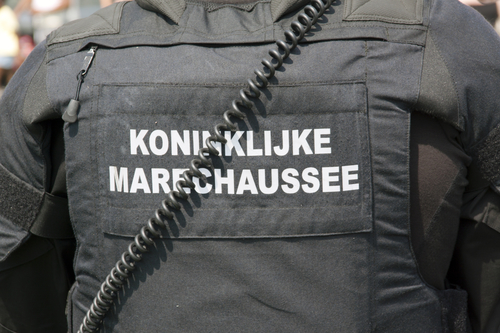Dutch border police go outside their remit, check cars for drugs and people

Dutch border police are doing more than simply checking for illegal immigrants and refugees when carrying out border checks, according to researchers at Leiden University.
The border police, who are part of the defence ministry, sometimes use ‘national security’ as an excuse to search cars for drugs, even though this outside their remit, professor Maartje van der Woude says in Tuesday’s Trouw.
The research is based on interviews with military police officials and 800 hours of observation with the mobile teams which have patrolled the Dutch borders since 2008.
‘Younger military police officers in particular are more inclined to catch crooks than supervise the implementation of immigration law,’ Van der Woude said.
Crime
However, by searching cars for drugs at the same time, officials are reinforcing the link that migration and crime go hand in hand, she said.
Cars with Romanian, Bulgarian and other eastern European number plates are most likely to be searched, but Polish cars are usually left alone.
Skin colour too plays a role in deciding what cars to stop, she said. Albanians are more likely to be suspected of being involved in serious crime while North Africans are considered likely drug smugglers.
Schengen
Since official border controls were scrapped between Schengen zone countries, Dutch police have carried out spot checks on cars crossing from Germany into the Netherlands.
Under EU rules, the police are only allowed to monitor the borders for a maximum 90 hours a month and stop a certain number of cars.
However, these controls were stepped up in September to cope with the surge in asylum seekers. Since then, over 200 people have been arrested on suspicion of human smuggling.
Thank you for donating to DutchNews.nl.
We could not provide the Dutch News service, and keep it free of charge, without the generous support of our readers. Your donations allow us to report on issues you tell us matter, and provide you with a summary of the most important Dutch news each day.
Make a donation